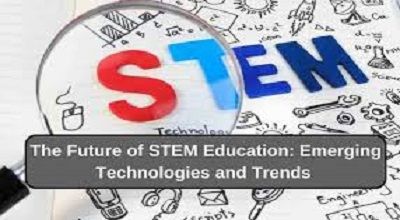Future of STEM Education
The future of STEM (Science, Technology, Engineering, and Mathematics). Education is increasingly intertwined with social impact and societal relevance. This shift is driven by several key factors and trends:
Key Factors…
- Global Challenges: The world faces complex challenges such as climate change, healthcare disparities, and poverty. STEM fields are at the forefront of addressing these issues and as a result. There is a growing emphasis on preparing students to use their STEM skills to tackle these real-world problems.
- Interdisciplinary Approach: STEM education is evolving to become more interdisciplinary. This means that students are encouraged to integrate knowledge. And skills from multiple STEM disciplines to solve complex social issues. For example, addressing climate change often requires expertise in environmental science, engineering, economics, and policy.
- Project-Based Learning: Project-based learning is gaining popularity in STEM education. Students work on hands-on projects that have real-world applications and societal impact. This approach not only helps students apply their knowledge. But also fosters collaboration and critical thinking skills.
- Ethical Considerations: As technology continues to advance, ethical considerations become more critical. STEM education is increasingly including discussions on the ethical implications of scientific and technological advancements, preparing students to make informed decisions that consider societal impacts.
- Diversity and Inclusion: There is a growing recognition of the need for diversity and inclusion in STEM fields. A more diverse STEM workforce can bring a broader range of perspectives to solving social issues. And ensure that the benefits of STEM advancements are distributed more equitably.
More Here…
- Community Engagement: STEM education is moving beyond the classroom. Many programs now involve community engagement, where students work on projects that directly benefit their local communities. This not only provides valuable learning experiences but also strengthens the connection between STEM and social impact.
- Technology and Access: Advancements in technology, particularly digital and online learning tools, are expanding access to STEM education. This allows a more diverse group of learners to engage with STEM topics and contribute to social impact efforts.
- Entrepreneurship and Innovation: STEM education increasingly encourages entrepreneurship and innovation. Students are encouraged to develop solutions to societal challenges and even start their own social impact ventures.
- Global Perspective: Many social issues are global in nature, and STEM education is becoming more globally oriented. Students are encouraged to collaborate across borders. And consider the global implications of their work.
- Government and Industry Support: Governments, organizations, and companies are recognizing the importance of STEM education for societal progress. They are investing in initiatives and programs that promote STEM education with a focus on social impact.
Summary
In conclusion, the future of STEM education is shifting towards a greater emphasis on social impact and relevance. Educators, policymakers, and institutions are recognizing this. The need to prepare students not only with technical skills. But also with the ability to apply those skills to address pressing societal challenges. This shift has the potential to create a more engaged, socially conscious, and impactful generation of STEM professionals.
